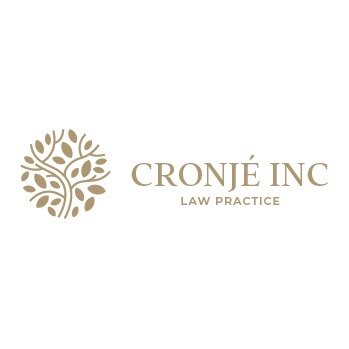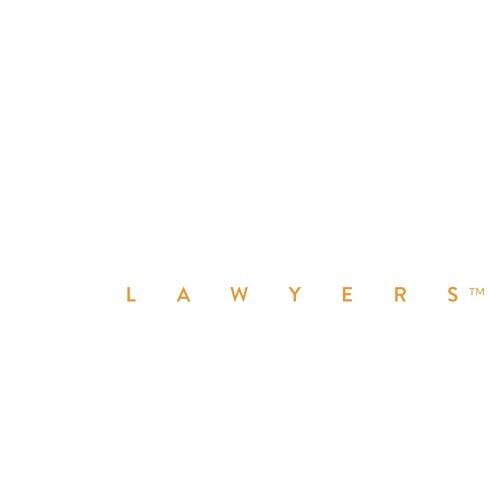Best Energy Regulatory Law Lawyers in Namibia
Share your needs with us, get contacted by law firms.
Free. Takes 2 min.
Or refine your search by selecting a city:
List of the best lawyers in Namibia
About Energy Regulatory Law in Namibia
Energy Regulatory Law in Namibia governs the generation, transmission, distribution, and supply of energy within the country. This legal field is designed to ensure fair, reliable, and sustainable access to energy resources, particularly electricity, which is vital for both residential and commercial sectors. The law balances the interests of consumers, industry stakeholders, investors, and the environment by regulating tariffs, licensing, safety standards, and environmental compliance in the energy sector.
Why You May Need a Lawyer
There are multiple circumstances in which seeking legal advice from an expert in Energy Regulatory Law becomes essential in Namibia. Common situations include:
- Applying for licenses or permits to generate, transmit, or distribute electricity
- Negotiating power purchase agreements or supply contracts
- Navigating compliance requirements with energy regulations and environmental standards
- Addressing disputes with regulatory authorities, utilities, or other energy sector participants
- Dealing with land use issues or property rights related to energy infrastructure
- Understanding the implications of policy changes or government directives
- Addressing consumer complaints or tariff disputes
- Assisting with investments in renewable energy projects such as solar or wind farms
Local Laws Overview
The main legislative framework for energy regulation in Namibia includes the Electricity Act of 2007, which sets out the process for licensing, regulation, and oversight of electricity undertakings. The Electricity Control Board (ECB) is the principal regulatory authority, responsible for monitoring the electricity supply industry and ensuring compliance with relevant laws. Critical aspects of the legal landscape include:
- Licensing Requirements: Any entity that wishes to generate, transmit, distribute, or supply electricity must hold an appropriate license from the ECB.
- Tariff Regulation: The ECB reviews and approves the tariffs charged by utilities to ensure they are fair and reflect the cost of supply.
- Quality of Service: Legal provisions exist to uphold minimum standards for reliable electricity delivery.
- Environmental Compliance: Projects must comply with environmental impact assessment requirements under the Environmental Management Act.
- Consumer Protection: There are regulations to safeguard the rights and interests of end users, including mechanisms for complaint resolution.
- Promotion of Renewable Energy: The law supports diversification of energy sources and encourages the development of renewable energy to promote energy security.
Frequently Asked Questions
What is the purpose of the Electricity Control Board (ECB) in Namibia?
The ECB is the national regulator responsible for overseeing the electricity supply industry. Its duties include issuing licenses, setting tariffs, monitoring compliance, and protecting both consumer and investor interests in the sector.
Do I need a license to generate electricity for my business or home in Namibia?
Yes, any individual or entity wishing to generate electricity for distribution or commercial use in Namibia must obtain a license from the ECB, even for renewable energy projects.
What happens if I operate without the required electricity license?
Operating without a valid license is illegal and can result in penalties, including fines, forced closure of operations, and potential legal action by the authorities.
How are electricity tariffs determined?
Electricity tariffs are subject to review and approval by the ECB. Utilities submit proposals for tariff adjustments, which the ECB evaluates to ensure affordability and sustainability.
Are there incentives for investing in renewable energy in Namibia?
Yes, the Namibian government encourages the development of renewable energy through supportive policies, facilitated licensing, and sometimes exemptions or incentives for certain projects. For full details, consult the ECB or a legal advisor.
How do I resolve a dispute with my electricity supplier?
Consumers can file complaints with the ECB, which offers mechanisms for dispute resolution. For complex disputes or legal proceedings, hiring a qualified lawyer is recommended.
What environmental requirements must energy projects meet?
Energy projects must comply with the Environmental Management Act, which requires an environmental impact assessment and ongoing compliance with relevant environmental standards.
Can foreign investors participate in Namibia’s energy sector?
Yes, foreign investors can participate in the energy sector, subject to compliance with Namibian laws, licensing requirements, and possible local partnership arrangements.
What is net metering, and is it allowed in Namibia?
Net metering allows consumers to sell surplus electricity generated from renewable sources (like solar) back to the grid. Namibia has policies that facilitate small-scale renewable energy producers to participate in net metering, subject to ECB approval.
Who should I contact first if I need help with an energy regulatory issue?
You should start by contacting the Electricity Control Board for guidance on licensing and regulatory processes. If you require legal assistance, a lawyer specializing in Energy Regulatory Law can help navigate the complexities.
Additional Resources
If you need more information or assistance regarding Energy Regulatory Law in Namibia, the following resources can be helpful:
- Electricity Control Board (ECB) - Principal regulatory authority for Namibia's electricity sector
- Ministry of Mines and Energy - Government department overseeing energy policy and regulations
- Legal Assistance Centre (LAC) - Provides legal support and publishes resources on legal rights in Namibia
- Namibian Association of Chartered Accountants - For financial and regulatory advice connected to energy projects
- Environmental Commissioner, Ministry of Environment, Forestry and Tourism - For guidance on environmental compliance and permits
Next Steps
If you need legal assistance in the field of Energy Regulatory Law in Namibia, begin by gathering all relevant documentation connected to your energy project or issue. Identify the specific area where you need help, such as licensing, regulatory compliance, contract negotiation, or dispute resolution. Consult the Electricity Control Board for procedural guidance, and contact a qualified Namibian lawyer with experience in Energy Regulatory Law. A specialist can evaluate your situation, ensure compliance with laws, and represent your interests effectively in dealings with regulators, business partners, or other stakeholders.
Act promptly to ensure that all legal and regulatory requirements are met, as failure to comply can result in significant penalties or project delays. Early legal advice can often prevent future complications and set your energy-related initiatives on a path to success.
Lawzana helps you find the best lawyers and law firms in Namibia through a curated and pre-screened list of qualified legal professionals. Our platform offers rankings and detailed profiles of attorneys and law firms, allowing you to compare based on practice areas, including Energy Regulatory Law, experience, and client feedback.
Each profile includes a description of the firm's areas of practice, client reviews, team members and partners, year of establishment, spoken languages, office locations, contact information, social media presence, and any published articles or resources. Most firms on our platform speak English and are experienced in both local and international legal matters.
Get a quote from top-rated law firms in Namibia — quickly, securely, and without unnecessary hassle.
Disclaimer:
The information provided on this page is for general informational purposes only and does not constitute legal advice. While we strive to ensure the accuracy and relevance of the content, legal information may change over time, and interpretations of the law can vary. You should always consult with a qualified legal professional for advice specific to your situation.
We disclaim all liability for actions taken or not taken based on the content of this page. If you believe any information is incorrect or outdated, please contact us, and we will review and update it where appropriate.
Browse energy regulatory law law firms by city in Namibia
Refine your search by selecting a city.















